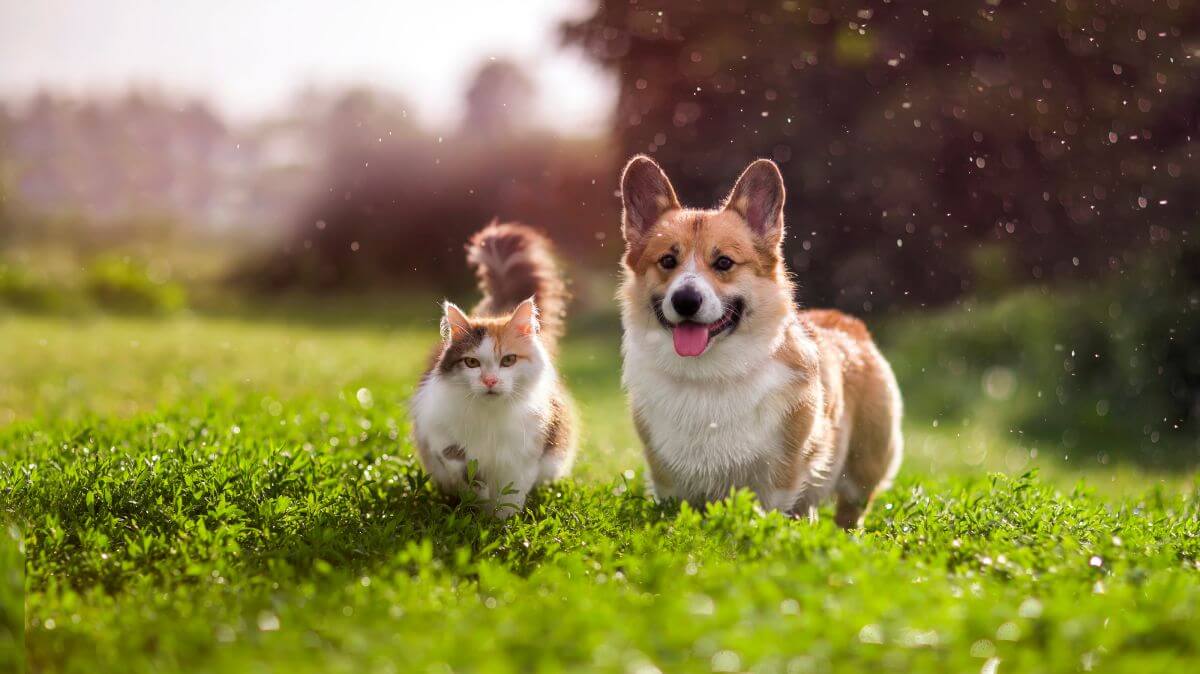Your choice of furry companion can say a great deal about your personality.
Australia has one of the highest pet ownership rates in the world. Approximately 62 per cent of households own pets, with dogs being the most common (42 per cent) followed by cats (27 per cent).
Research shows that people with pets are healthier and less depressed than those without. Pets are a huge source of happiness and comfort to many people, and are often treated as important members of the family.
But every pet, no matter the species or breed, has a different personality, and your choice of pet can say a lot about you and your personality. For instance, an introvert is more likely to pick a cat as their furry companion while an extrovert is likely to be a dog owner.
A survey carried out by the University of Texas in Austin found that some common beliefs about pet lovers may be true; you may be a lot more like your furry friend than you ever realised.
Are you a cat person or a dog person? Usually, even people who don’t own either pet can identify which category they fit into, and the answer may say something about their personality.
The study
As a general rule, dogs are more social and eager to please, while cats are more introverted and curious.
In the study, self-described cat and dog people appeared to share these traits.
“Even though we have this widely held idea that dog people and cat people are somehow different, we haven’t really known how they are different and previous research has failed to tell us,” says psychologist and study researcher Sam Gosling, PhD, of the University of Texas.
He believes that is because earlier studies examined personality differences in cat and dog owners, failing to account for the fact that a dog person may actually own a cat and vice versa.
As part of a larger online personality survey, Mr Gosling and colleague Carson J. Sandy, asked about 4500 people if they considered themselves dog or cat people.
The survey asked 44 questions that investigated the five dimensions of personality thought to encompass the spectrum of personality types:
Conscientiousness. Common behaviours include self-discipline, a sense of duty, and a tendency toward planned vs spontaneous behaviour.
Extroversion. A tendency toward being gregarious, enthusiastic, positive, and energetic.
Agreeableness. Includes attributes such as trust, altruism, kindness, affection, and sociability.
Openness. Includes traits such as an appreciation for the arts, curiosity, creativity, and non-traditional thinking and behaviour.
Neuroticism. Includes characteristics such as being easily stressed, anxious, or easily worried.
“In terms of personalities, I would say Woody Allen is at one end of this spectrum and the ‘Dude’ from the Big Lebowski is at the other,” Mr Gosling says.
Of those who took the survey, 46 per cent identified themselves as dog people, while 12 per cent said they were cat people. Another 28 per cent said they were both and 15 per cent said they were neither.
Dog people
According to the findings, self-identified dog people were 13 per cent more agreeable than cat people, 11 per cent more conscientious and 15 per cent more extroverted.
“These are not huge differences,” Mr Gosling says. “There are certainly many, many cat people who are extroverts and many, many dog people who aren’t.”
But he adds that the findings may have broader implications in the field of pet therapy, suggesting that personality screening may help match people in need with the most appropriate animal.
Considering that most dogs require regular exercise, the lean towards extroversion makes sense.
In most instances, a dog forces you to get out of the house. So, people with dogs as pets are probably more likely to be interested in walking, running and cycling. Of course, not all dogs are the same and not all dog owners will have the same interests. Lap dog, anyone?
Cat people
The survey found that cat people were about 12 per cent more neurotic than dog people and 11 per cent more open.
They were found to be more creative and curious but were prone to worry and became more easily stressed.
According to research from the UK’s Bristol University, cats seem to complement humans who are more introverted. The same study also found that people with a degree were more likely to own cats than dogs.
“It could have something to do with work hours,” says lecturer Jane Murray, the study’s lead author. “If you’re well educated, you could be working longer hours or have a longer commute to work. This will make it more difficult to own a dog as it requires more attention and exercise. But this is all speculation at best.”
Subconsciously, people often choose an animal that they feel displays the right message to the rest of the world. A person’s pet is a member of their family and often a reflection of themself.
Do you have a pet? Are you a cat person or a dog person? Have you had a pet with a really interesting personality? Share your thoughts in the comments section below.
Also read: Tips for choosing a retirement-friendly pet


Well, I blow most of these theories out of the water while offering a personal amalgam of the personality types judging by the mix of creatures that share my life. They keep me poor, happy and enjoying my days while caring for them. The cats, dog, sheep, kangaroos and goat make up a wonderful little family. Most have been rescued. Suffice to say I live in the country, but if I was a city dweller I would still be wanting to enjoy and care for assorted pets that may come my way.
And yes, in case you’re wondering, I do have a great human family along with many friends and acquaintances as well.